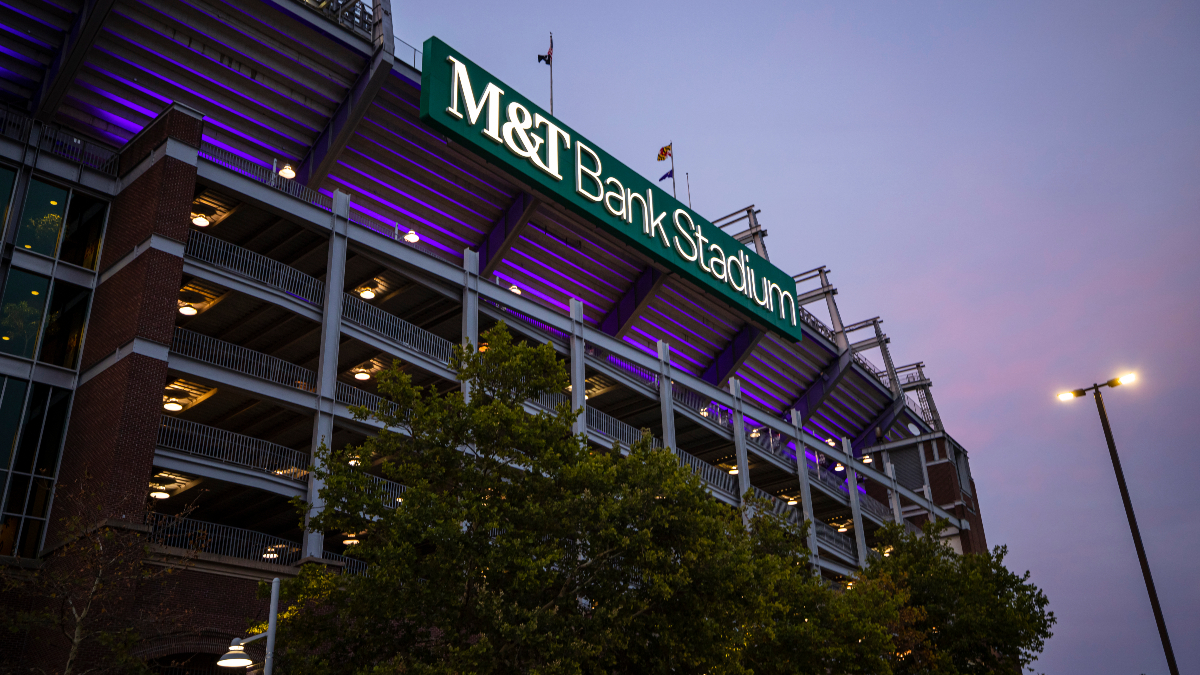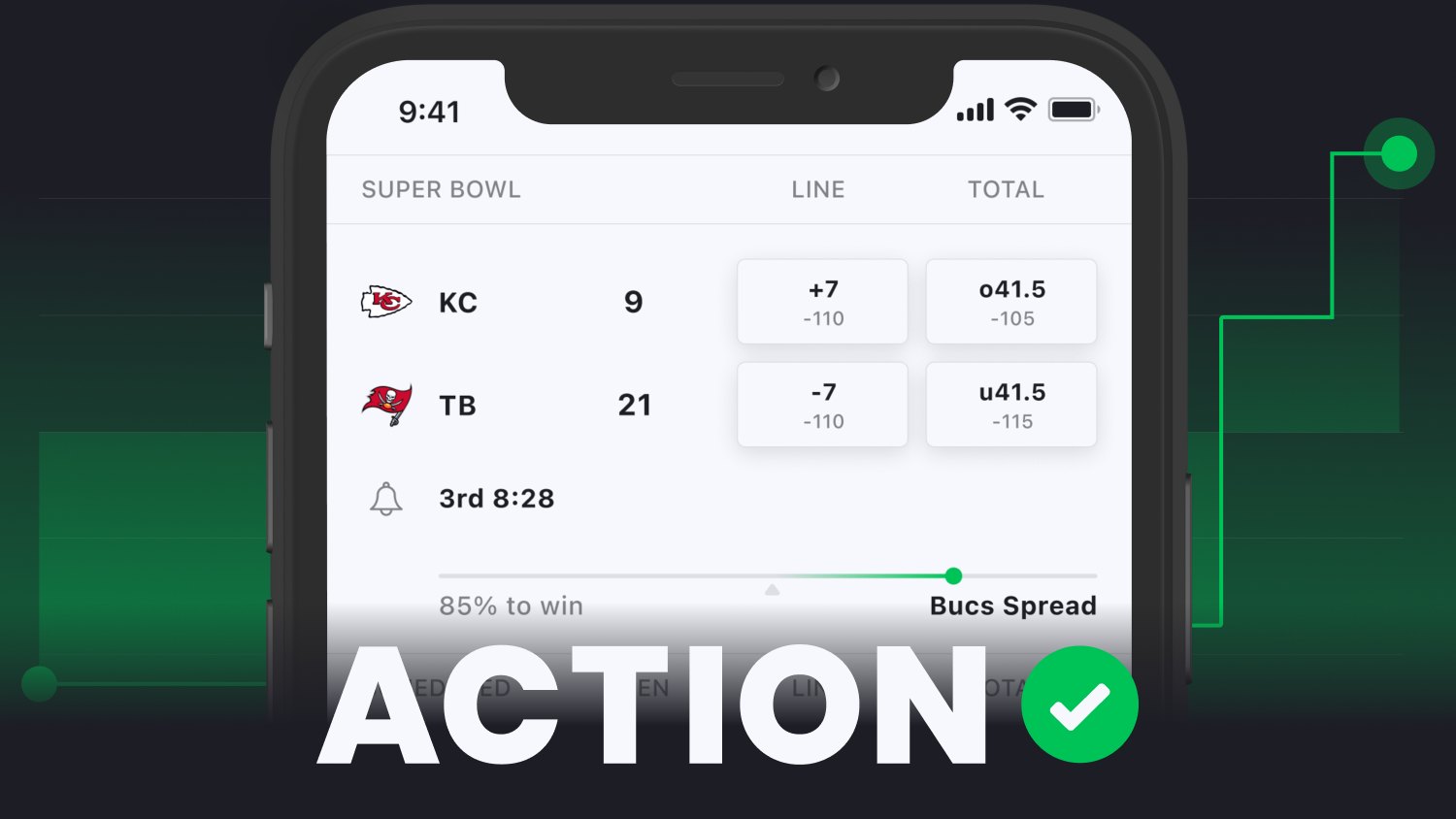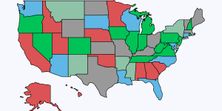Maryland Sports Betting Launch Date Still Undetermined as NFL Opener Nears
Scott Taetsch/Getty Images. Pictured: A general view of M&T Bank Stadium.
There’s no firm launch timeline for retail or online sports betting in Maryland two weeks before kickoff of the upcoming NFL season, perennially sportsbooks’ most lucrative time of the year.
The Maryland Lottery and Gaming Commission has still not announced the opening date for sportsbook application submission. Though the current proposed regulations and licensing requirements are publicly available, it will likely still take weeks after the initial opening for regulators to finalize each sportsbook application.
Because of this uncertainty, the state’s commercial gaming venues and several other facilities eligible for sportsbooks are still not publicly projecting a launch timeline. Small businesses, which can also apply for online and retail sportsbook licenses, will go through a separate regulatory review process and will not launch until sometime after the casino books.
Regulators announced Friday they were opening a 30-day public comment period for the final sports betting rules. The licensing opening will begin sometime after that window closes Sept. 27.
This means Maryland sports betting won’t begin until the 2021 NFL season is already underway. It seems increasingly likely the licensing process could drag out through a significant portion of the regular season.
Brianne Doura-Schawohl, VP US Policy and Strategic Development at EPIC Risk Management, said during an industry webinar Thursday she was not only worried by the state’s regulatory structure but also its lack of responsible gaming measures. Aside from a problem gambling hotline, there is no responsible gambling help included in the regulations for sports betting in Maryland, which is expected to be one of the nation’s largest per capita markets.
The dearth of problem gambling assistance plus the ongoing licensing delays are the continuations of a trying legislative and regulatory process, Doura-Schawohl said during Thursday’s Gaming Americas digital conference.
“Maryland is one of those states that I found myself increasingly frustrated as I was engaging with stakeholders,” Doura-Schawohl said. “We definitely got left behind there.”
Maryland Background
Maryland lawmakers approved a 2020 constitutional amendment that allowed voters to approve sports betting via that year’s ballot. Voters overwhelmingly backed the measure last November, and elected officials passed a follow-up regulatory bill this April with widespread bipartisan support.
The legislation tasked the Maryland Lottery and Gaming Commission to promulgate follow-up rules, licensing requirements and final sportsbook approvals, a process that is still ongoing. Though more than a dozen states had already written and implemented similar sports betting regulations, Maryland officials pursued an original framework with assistance from outside consultants, a “scary thing,” said New Jersey-based gaming lawyer Jeremy Kleiman.
Speaking at Thursday’s conference, Kleiman worried Maryland’s regulatory path could handicap the state’s sports betting market. He said regulators in Maryland — and other states considering legal wagering — should follow examples set forth by New Jersey, the nation’s largest market by handle.
“In my view, the mistake is not following the path the same other states have done successfully by not reinventing the wheel,” Kleiman said. “Rather than pay for that expertise, get it for free from regulators like in New Jersey who know what they’re doing and have been very successful.”
Small Businesses Participation
Maryland’s 2020 ballot measure and ensuing sports betting law also explicitly requires minority and women-owned business participation. Policymakers sought to meet these legislative requirements by opening up to 60 statewide mobile licenses, the highest cap of any state, as well as 30 retail licenses.
A special committee was created by the legislation that will consider ownership demographics when awarding licenses to small businesses. Panelists at Thursday’s webinar applauded Maryland’s initiative but questioned its practicality.
Kleiman said running a sportsbook, especially online, is a highly specialized, technically advanced endeavor that will be logistically difficult to pull off, especially in what could be such a saturated market. Instead, Kleiman said Maryland should have pursued a business incubator for minority and women-owned business that could have created alternate avenues to participate in legal wagering.
“(The current structure) is well intentioned, but I think the execution is not the way to go,” Kleiman said.
Substantive changes are unlikely at this point in the process. More than a dozen Maryland small business owners testified in support of the bill earlier this year potential sportsbook partners are already preparing to begin the licensing process.
Maryland will join Tennessee and Washington D.C. as the only jurisdictions that permit similar small and locally-owned business to pursue sportsbook options. Tennessee’s lone online sportsbook had its license temporarily suspended due to criminal money laundering accusations and D.C.’s first locally-owned retail book has yet to open.
“(Sports betting) is highly regulated and specialized for a reason,” Doura-Schawohl said. “There’s a lot that can go wrong.”
Next Steps
As both established gaming interests and small businesses work toward the undetermined launch date, market participation is starting to take shape. With major professional sports teams, one of the nation’s top education rates and its highest per capita income, Maryland will be a top target for many sportsbook operators.
State casinos including MGM National Harbor (BetMGM), Live! Casino Maryland (FanDuel), Hollywood Casino Perryville (Barstool Sportsbook) and Horseshoe Casino Baltimore (Caesars) are all working toward online and retail sportsbooks once they earn approval. Other leading sportsbook brands such as DraftKings and PointsBet are also planning to enter the market.
In addition to the casinos and small businesses, Maryland’s three major professional sports stadiums (FedEx Field, Oriole Park at Camden Yards and M&T Bank Stadium) can also open retail and online sportsbooks. The operator of the state’s two major horse tracks, Laurel Park and Pimlico, can also apply for a license, as too can the state fairgrounds and several off-track betting facilities.
The existing gaming operator, as well as third-party sportsbook brand attention, underscores interest in the market, despite the regulatory delays. Multiple state gaming stakeholders and regulators at Thursday’s Maryland Gaming and Lottery Commission meeting reiterated optimistic views on sports betting’s pending launch, and the state’s demographics and a plethora of available licenses should facilitate a lucrative per capita market.
Still, outside industry analysts worry the regulatory structure could impede Maryland sports betting, a fear already manifested by the prolonged licensing process and still undetermined launch date.
“We’ll see what the final product looks like in Maryland," Kleiman said, "but I have my doubts.”
How would you rate this article?



